Search
Did you mean: Isis?
Search Results

Definition
Septimius Severus
Lucius Septimius Severus was Roman emperor from April 193 to February 211 CE. He was of Libyan descent from Lepcis Magna and came from a locally prominent Punic family who had a history of rising to senatorial as well as consular status...
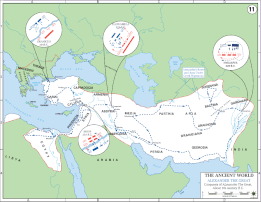
Image
Map of Alexander the Great's Conquests
A map showing the route that Alexander the Great took to conquer Egypt, Mesopotamia, Persia, and Bactria.
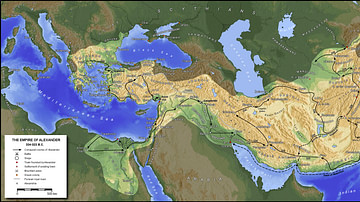
Image
The Empire of Alexander the Great
A map showing the Empire of Alexander the Great, his conquests, and the routes he took (334 BC - 323 BC). Major cities, roads, and battles are indicated.

Article
The Hellenistic World: The World of Alexander the Great
The Hellenistic World (from the Greek word Hellas for Greece) is the known world after the conquests of Alexander the Great and corresponds roughly with the Hellenistic Period of ancient Greece, from 323 BCE (Alexander's death) to the annexation...

Article
Death of Alexander the Great
In June of 323 BCE, Alexander the Great (r. 336-323 BCE) died in Babylon. His sudden death before his 33rd birthday has long been a point of speculation: was it disease, old wounds, or murder? Regardless of the cause, history ranks him as...
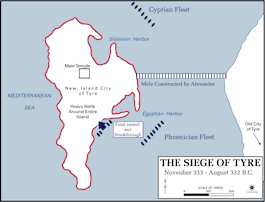
Article
Alexander's Siege of Tyre, 332 BCE
After defeating Darius III at the battle of Issus in November 333 BCE, Alexander marched his army (about 35,000-40,000 strong) into Phoenicia, where he received the capitulation of Byblus and Sidon. Tyrian envoys met with Alexander whilst...
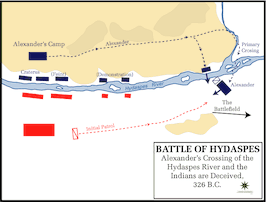
Article
Battle of Hydaspes
For almost a decade, Alexander the Great and his army swept across Western Asia and into Egypt, defeating King Darius III and the Persians at the battles of River Granicus, Issus and Gaugamela. Next, despite the objections of the loyal army...
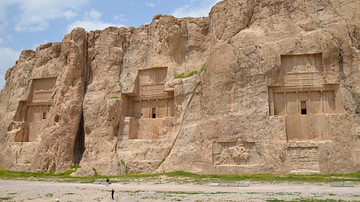
Article
Achaemenid Kings List & Commentary
The Achaemenid Empire (c. 550-330 BCE) was the first great Persian political entity in Western and Central Asia which stretched, at its peak, from Asia Minor to the Indus Valley and Mesopotamia through Egypt. It was founded by Cyrus II (the...
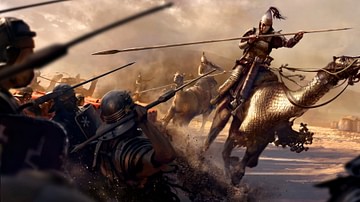
Article
Legions of the Parthian Wars
Parthia had always been a thorn in the side of the Roman Empire. The initial campaigns by Crassus and Mark Antony were total failures, and although Trajan and Syrian governor Cassius made some progress in the 2nd century CE, both failed to...
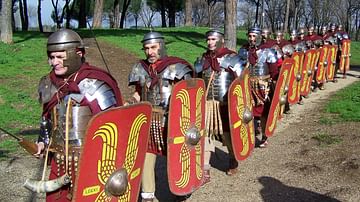
Article
Legions of Moesia
The province of Moesia was vital to the Roman military’s protection of the Balkans. Subdued by the Roman commander Marcus Licinius Crassus in 29 BCE, it was initially part of Macedonia. Due to its location along the Danube, it became essential...